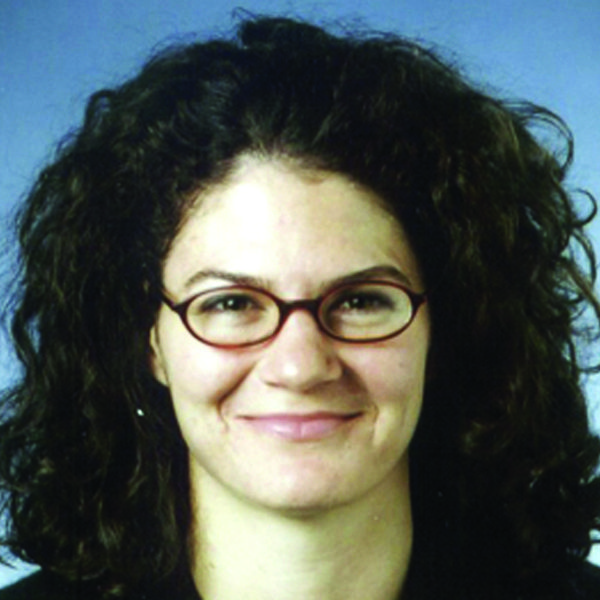
- Graduate Field Affiliations
- Biological and Environmental Engineering
- Civil and Environmental Engineering
- Environmental Quality (minor)
- Microbiology
Biography
Richardson joined the faculty in January, 2002, after finishing her Ph.D. in Civil and Environmental Engineering at the University of California at Berkeley, where she also received her M.S. Her B.S. in Chemical Engineering was earned at Manhattan College in Riverdale, New York. She has had internships as both a Chemical Engineer with Air Products and Chemicals and an Environmental Consultant with Malcolm Pirnie Consultants. She was introduced to laboratory research as an undergraduate through a Howard Hughes Medical Institute Research Grant, which was awarded to study the pathogenicity of various microorganisms isolated from HIV+ patients at Cornell’s Weill Medical College/New York Hospital.
While at Berkeley, she enjoyed tenures as an NSF Graduate Fellow, an EPA STAR (Science to Achieve Results) Fellow, a University of California Toxic Substances Research and Teaching Program Trainee, a Tau Beta Pi Graduate Fellow, and an officer in the Microbiology Graduate Student Group. She also worked with the USEPA and the Army Corps of Engineers on treatability studies at a creosote-contaminated Superfund site in Washington State. Such experiences sparked and nurtured her interests in bioremediation, molecular biology, and the science/policy interface–especially in the areas of chemical and microbial contamination of water and soil.
At Cornell, Dr. Richardson’s research has focused upon the application of molecular biological tools to improve basic understanding of microbes relevant to bioremediation, sustainable wastewater treatment and sustainable bioenergy and apply this understanding to the deployment of microbial processes in environmental and reactor systems.
Research Interests
- Water Systems
- Environmental Processes
Teaching Interests
In general Dr. Richardson’s teaching focus is in the area of bioenvironmental engineering – teaching both lecture and laboratory courses. However heteaching duties have also included instructor duties for the Engineers for a Sustainable World class (CEE4920) and a short course developed for Cornell’s NSF-IGERT in Cross-Scales Biogeochemistry and Climate. This “Bootcamp” covers molecular biological methods and applies them to microbes playing key roles in green house gas cycling (CEE6055)
Service Interests
Dr. Richardson has served Cornell, the broader academic community, and local watershed health issues over the last year. She serves on the Issues Committee of the Cayuga Lake Watershed Network and was a two term past Board of Directors member. Key issues or interest are hydrofracking, invasive species, and septic system maintenance and repair. Dr. Richardson is also currently the faculty advisor to the Engineers for a Sustainable World student group and Women’s Soccer clubs. As well as being the project supervisor for a service learning project (the ESW Biofuels team) she also advises several undergraduate students in independent research each semester.
Select Publications
-
Mansfeldt, C B., G W. Heavner, A R. Rowe, B. Hayete, B W. Church, R E Richardson. 2016. “Inferring Gene Networks for Strains of Dehalococcoides Highlights Conserved Relationships between Genes Encoding Core Catabolic and Cell-Wall Structural Proteins..”PLoS one 11 (11): e0166234-e0166234.
-
Mansfeldt, C B., L V. Richter, B A. Ahner, W P. Cochlan, R E Richardson. 2016. “Use of De Novo Transcriptome Libraries to Characterize a Novel Oleaginous Marine Chlorella Species during the Accumulation of Triacylglycerols..” PLoS one 11 (2): e0147527-e0147527.
-
Otwell, A E., S J. Callister, E M. Zink, R D. Smith, R E Richardson. 2016. “Comparative Proteomic Analysis of Desulfotomaculum reducens MI-1: Insights into the Metabolic Versatility of a Gram-Positive Sulfate- and Metal-Reducing Bacterium..” Frontiers in Microbiology 7: 191.
-
Otwell, A. E., R. W. Sherwood, S. Zhang, O. D. Nelson, Z. Li, H. Lin, S. J. Callister, Ruth E. Richardson. 2015. “Identification of proteins capable of metal reduction from the proteome of the Gram-positive bacterium Desulfotomaculum reducens MI-1 using an NADH-based activity assay: Metal reductases from Gram-positive metal reducer.” Environmental Microbiology 17: 1977-1990.
-
Richardson, R E. 2013. “Genomic insights into organohalide respiration.” Current Opinion in Biotechnology 24 (3): 498-505.
Select Awards and Honors
- Appointed to the EPA Scientific Advisory Board (SAB) Environmental Engineering Committee 2016
- Chi Epsilon Honor Society Induction 2014
- Mr and Mrs. Richard F. Tucker Cornell College of Engineering Teaching Award (Cornell University) 2014
- College of Engineering Excellence in Advising Award (Cornell University) 2008
- Paper featured as a "Key Research Article" by Environment Progress (Environment Progress (environmentProgess.com)) 2013
Education
- B.S. (Chemical Engineering), Manhattan College 1994
- M.S. (Civil Engineering), University of California, Berkeley 1995
- Ph.D. (Civil Engineering), University of California- Berkeley 2001
